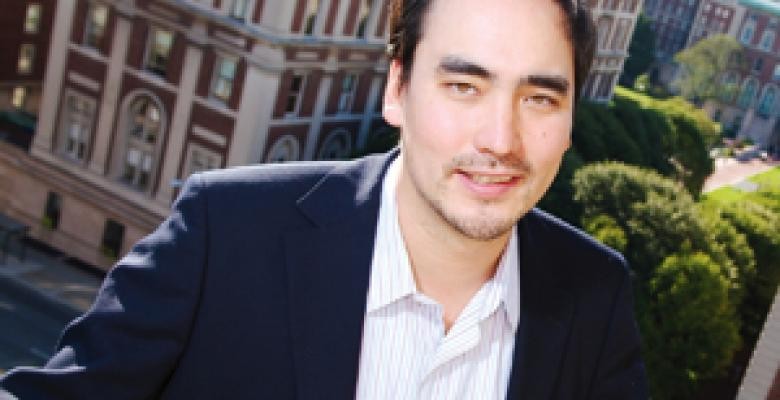Tim Wu Reflects on His Year Helping Shape Internet Policy

In the year that Law School Professor Tim Wu spent at the Federal Trade Commission, the debate over Internet issues only grew louder and more urgent, with, for example, the announcement of an antitrust investigation of Google and the government’s first major privacy settlement with Facebook.
Known for his groundbreaking scholarship on information networks, Wu's focus at the FTC was on helping the government with emerging regulatory policy and cases involving the Internet and mobile markets.
He was invited to join the agency as a senior adviser in January 2011, shortly after the publication of his book "The Master Switch: The Rise and Fall of Information Empires," which focuses on the history of modern communications.
His first book, "Who Controls the Internet? Illusions of a Borderless World," was written with Jack Goldsmith, a Harvard law professor. Wu is perhaps best known for coining the term “net neutrality,” which embodies the principle that all communications on the Internet should be treated equally, and that Internet service providers should not be allowed to discriminate against competing services.
During his year at the regulatory agency, Wu led an internal agency working group examining antitrust and privacy issues, and he participated as well on public investigations of tech companies. His other work at the commission remains confidential, in keeping with FTC policy.
During weekly brainstorming sessions, Wu brought together a mix of lawyers, economists and computer scientists, including the heads of FTC enforcement divisions, to consider novel antitrust and privacy questions posed by the actions of high-tech companies such as Google, Facebook, eBay, Amazon and Apple.
“Some of these companies have achieved dominant positions, and some extract huge amounts of user data as part of their operations,” Wu said. “And the basic question is what should the agency—and by extension, the federal government—do, if anything, about the power of emerging platforms.” Working at the FTC reinforced Wu’s views about the role of government. “I don’t believe in excessive government regulation, but I do believe in government oversight,” he said.
Wu says the U.S. faces the challenge of increasing concentrations of private power in the hands of a few companies. As a general rule, he continued, “I have come to think that all great power must be balanced by countervailing power.
The basic idea in the U.S. Constitution is a good one.” Since returning to Columbia, Wu is focusing his academic writing on antitrust issues and has recently finished two new papers: “Taking Innovation Seriously” and “Parallel Exclusion.”
The latter was co-authored by antitrust scholar Scott Hemphill, currently on leave from Columbia Law School to be chief of the antitrust bureau of the New York State Attorney General’s Office. Wu is also teaching a new course, “The Media Industries: Public Policy and Business Strategy,” with Jonathan Knee, an adjunct professor at Columbia Business School.
Now that he is no longer working for the government, Wu is happy about being able to speak his mind publicly again. During the months he worked at the FTC, he refrained from posting comments about his projects on the page of his personal website titled “What’s New with Wu.” “The greatest thrill of leaving government is being able to say whatever you want,” he said.
A prolific writer, Wu has contributed articles to The New Yorker, the Washington Post, Forbes, Slate magazine and others. His popular writing includes essays about travel, motorcycles, weightlifting and dumplings, a beloved staple of Chinese cuisine.
A former law clerk for Judge Richard Posner of the 7th U.S. Circuit Court of Appeals in Chicago and Supreme Court Justice Stephen Breyer, Wu graduated from McGill University and Harvard Law School. He has worked as a fellow at Google and served as chairman of the media reform organization Free Press. In March, the World Economic Forum announced that it had selected Wu as a 2012 Young Global Leader.
Looking back at his year at the FTC, Wu says he immensely enjoyed public service and his role as a regulator. “I loved it,” he said. “I had a terrific time at a great agency.”